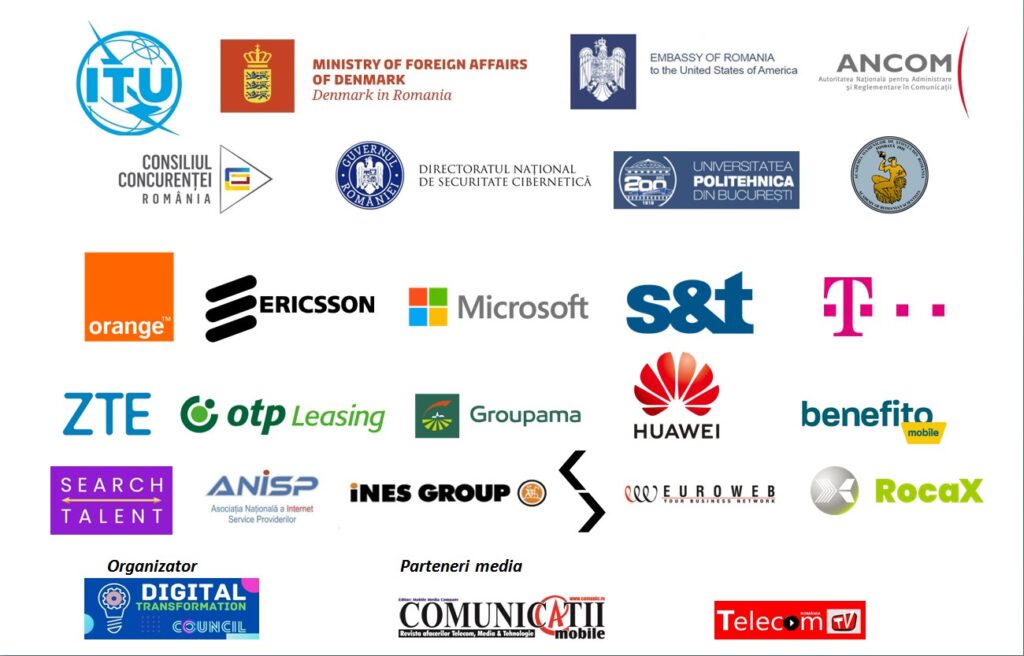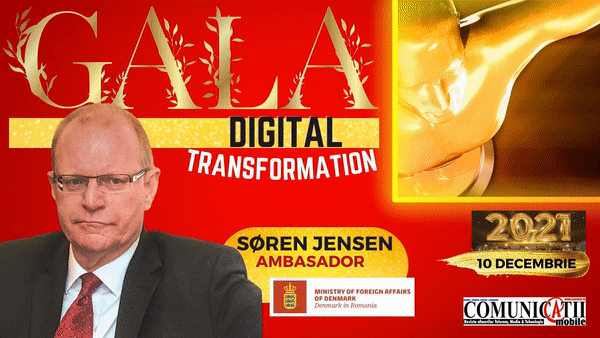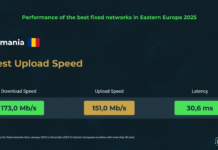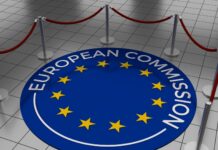Søren JENSEN, Ambassador – Embassy of Denmark in Romania @ DIGITAL TRANSFORMATION GALA by COMUNICAȚII Mobile 2021, the 18th annual edition, organized by DIGITAL TRANSFORMATION COUNCIL, Mobile Communications Magazine and TelecomTV.ro on December 10, 2021.
Thank you for having me on and thank you for the introduction. Yes, Denmark is among the most digitalized societies in the world. In the latest digital economy index (DESI), we are the most digitalized country in the European Union based on four criteria: human capital, internet access, integration of digital technologies, and public services.
LIVE
What does it mean to be more digitalized? Well, it basically means that almost all public transactions and communications with the government, from citizens to the government is digitalized, so we are “digitalized by default”. We don’t use paper in our dealings with the public sector, everything we do relating to taxes, relating to properties, relating to practically all kinds of other aspects of our daily life are communicated on the digital platform. This has not been an easy exercise, it’s taken many years to build up this experience in Denmark. I can go through some of the important steps that we have learned and that I think Romania can benefit from, but the benefits are clear enough for us. If we look at the financial aspect, we have an assessment that the government is saving around 300 million euros annually, simply because of the fact that we are digitalized. The assessment of reduced time consumption is at least 30% compared to the period where we were not digitalized.
We have also come into a situation where the whole population is digitalized. It’s not a question of only young people, but also the elderly. There have been courses arranged both by the public and by private organizations to get the elderly online. For instance, 95% of all applications relating to state pensions are done digitally, so this is not something that is only a question of young people.
But how did we come to this point? Well, it’s taken a number of years and it’s taken a number of steps. Initially, it has been difficult getting people to accept the digital transformation. Getting the public sector to get used to the transformation has not been an easy one. I think there are a couple of things that I would highlight that are important for why this has been possible, and I think these are also elements that Romania can use and learn from. Because the advantage for Romania is that, they can learn from the mistakes that we have already made, and of course, we have made a number of mistakes over the last 25 years where the main elements of the digital transition have happened.
One of the first things I would say is that it is very important to have a very clear political direction. There has to be a strong political commitment to the goals, as well as to the necessary economic allocations, preferably through a national digital strategy that has broad political basis and agreement. If this is not the case, you easily have a situation where decisions are not kept or not taken, or decisions are changed, which makes the digital strategy difficult to implement. So there has to be some kind of political agreement to do this. I know that the new quite broad government you have in this country has also digitalization as one of its major priorities, so that might be a good start for making this transition.
Also, there is an advantage to have what I would call administrative clarity, meaning that it’s very useful to have a single authority responsible, a centralized structure responsible for driving the digital agenda. Our experience is that having an authority placed very close to one of the major power ministries is one way of doing this, so our digitalization agency has always been placed under the responsibility of the Minister of Finance. This has obvious advantages: the Minister of Finance holds the strings of government, so he or she will always be a strong figure in any government. Other constructions could be putting it under the Prime Minister’s office, which I know Romania has done in the earlier construction. But having a very powerful agency that can actually set some standards and make sure that they’re implemented. Because one thing you can be sure of, everybody wants to be digitalized, everybody is in favor of coordination of digitalization, but nobody wants to be coordinated.
Some of the mistakes we made in the earliest stages was to start digitalization processes in a decentralized fashion. We ended up having systems in various parts of government, local, regional that could not communicate. And this was not a good idea.
Finally, you need to have public support. All these kinds of transitional processes can only happen if you really have public support, which means you need to have public trust. The public needs to see clear benefits from what’s happening, they need to see that their daily life becomes easier, so if they have to be digitalized at the same time as they still have to queue in front of notary or in front of tax offices, then they will not really take this as an advantage. They would just see it as an extra burden.
The digital strategy needs to involve very clear tangible results in limiting the time people spend doing physical things that they can then do online. This kind of trust is very, very important and the benefit should not only be for citizens, of course, but also for businesses. The businesses need to have the same advantage or see the same advantages as the citizens.
Now, the advantage of this whole strategy, apart from having a system that is online and where you can boost yourselves of results is a huge degree of transparency. A digital system is by nature transparent, it’s easy to follow processes, it’s easy to see how resources are spent, where resources go, which kind of decisions are made? The individual has access to this information much easier. So transparency is, I would say, one of the advantages, and transparency can be a huge advantage, particularly if there is a system of politics where trust is perhaps not, let’s say, the strongest character. I think we have seen certain challenges in Romania when it comes to trust, for instance, in what people are told about vaccines. So I think if you can build up through a digital system a stronger public trust, simply because of more transparency, it’s easier to see what your money is spent for. You will also get more trust in the system.
The other advantage for the government, of course, is that they can save money, and I said, we expect that we save around 300 million euros a year. This is money that could be spent on other things. But, of course, the other advantage from digitalizing certain sectors, for instance, tax collection is that tax evasion becomes much more difficult. Again, the transparency factor can work to the government’s benefit as well. By digitalizing the tax system, you have an advantage of actually being able to collect a lot more taxes.
Tax collection is still a challenge, not only in Romania, but also in a number of other countries, and digitalization is, I think, the only way forward to improve this situation.
There are a lot of funds right now available for digitalization. This is a very positive development. There’s a historical level of funding available to Romania from the recovery funds from the European Union. The PNRR has a very strong digital element, which I think is a very positive sign, so if we add to that, hopefully a strong national strategy, a strong natural enforcement, Romania has the chance actually to make really good progress on the digital agenda.
We stand ready to assist you. Denmark has the experience and the know-how. And we’re ready to help.
So thank you very much.










